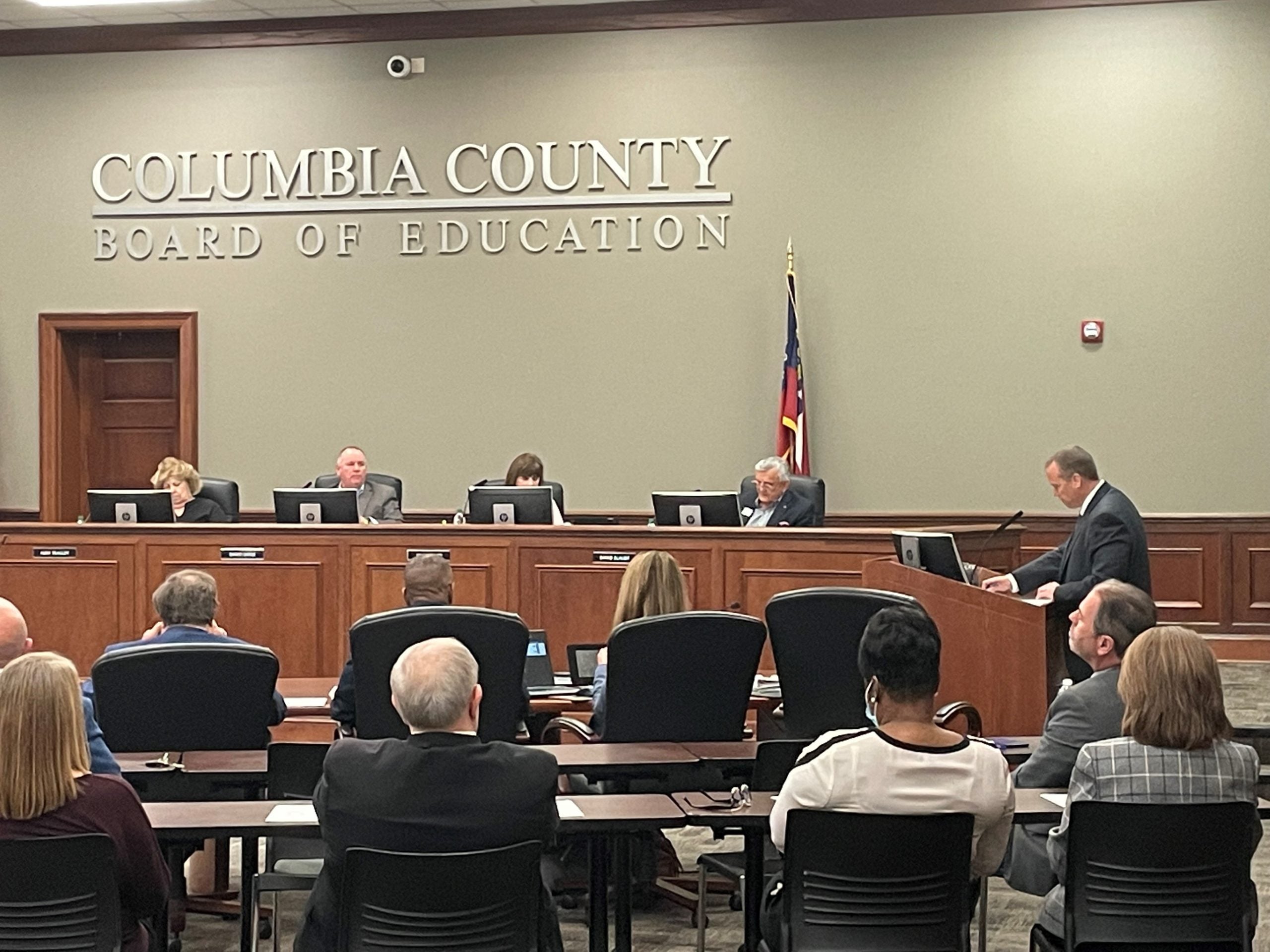Columbia County Associate School Superintendent Michele Sherman announced Tuesday, Feb. 22 at a school board work session that no action will be taken regarding use of the novel “To Kill A Mockingbird” after a meeting of an appeal committee.
The announcement came as the school district addresses recent controversies regarding its policies for classroom and library materials.
“There’s an understandable level of passion from all aspects surrounding instructional materials and books available to students,” said School Superintendent Steven Flynt, addressing the board before presenting Sherman to speak on the matter. “Some of that feedback has led us to understand that we need to communicate better now than we ever have before.”
[adrotate banner=”51″]
A work session meeting differs from the board’s regular session. Work sessions are designed so district staff and administration can discuss various issues with the school board. Public participation in the meeting is not allowed.
Topics discussed at Tuesday’s meeting included the district’s instructional material review process. This is amid recent concerns about Harper Lee’s classic novel going through an appeal review after a parent submitted a complaint about the book’s racially charged language.
Sherman explained the district’s protocols regarding the selection and review processes for materials, such as novels or films, used as part of the curriculum as well as those made available in school libraries and media centers.
Regarding resources selected by teachers for use in the classroom, Sherman highlighted a set of criteria the district has recently developed to be the basis for appeal decisions. These criteria include that a given resource be “relevant, have the highest quality, appropriate and should avoid pervasive vulgarity.” Sherman noted that district teachers are already inclined to consider these factors when selecting materials. She added that the criteria are not meant to be a rubric for teachers to use prior to purchasing materials or to limit creativity.
“While there is no formal approval process for classroom teachers, we do require teachers to preview any materials for use in the classroom with these criteria in mind,” she said.
Sherman also outlined the district’s updated appeal process for books and other materials. Parents can use the process to place formal complaint. When a complaint is received, a committee is created to review the material. The process, Sherman says, entails the district asking the complainant—who is required to be either a Columbia County resident or the parent of a child in Columbia County schools— to describe the reason for the appeal; if the complainant has read the book in its entirety; to share specific concerns, complete with page numbers, about a given book’s appropriateness; identify the book’s theme and any positive aspects; and the complainant’s desired outcome. They are also offered the opportunity to give an oral presentation to the committee.
The appeal committee for “To Kill A Mockingbird” ultimately decided to “take no action,” Sherman said. Other options, according to the process, would have been to remove it or restrict it according to grade level.
[adrotate banner=”15″]
Sherman noted that while “To Kill A Mockingbird” is the only book that has been submitted to go through this appeal process, some parents have provided the district with a list of several books they are concerned about because of vulgarity or controversial book titles.
Sherman also addressed accusations that the appeal for “To Kill A Mockingbird” was a plant by the district.
“Nothing could be further from the truth and is completely false,” she said.
Before ending her presentation, Sherman also addressed the allegation that some of the materials in question are pornography.
“I, along with many, if not all of my colleagues have been extremely bothered by the accusation that we provide pornography to our students,” said Sherman. “We do not. Pornography is material that is created for certain purpose and has no place in our schools. There’s some of the reading material that was selected often many years ago, may have graphic content. It is often said in the content text of a lesson or to relate to others who may have similar experiences. We will continue to look for sexual content that is not appropriate for the high school setting. But I will say again, unequivocally we do not provide pornography to our students.”
To see the forms and policies associated with IFAA, the Columbia County School District’s procedure for learning resources selection and recommendation, which includes the form for submitting complaints for appeal, visit https://www.ccboe.net/apps/pages/index.jsp?uREC_ID=1197232&type=d&pREC_ID=1438925.
Skyler Q. Andrews is a staff reporter covering education in Columbia County and business-related topics for The Augusta Press. Reach him at skyler@theaugustapress.com.











